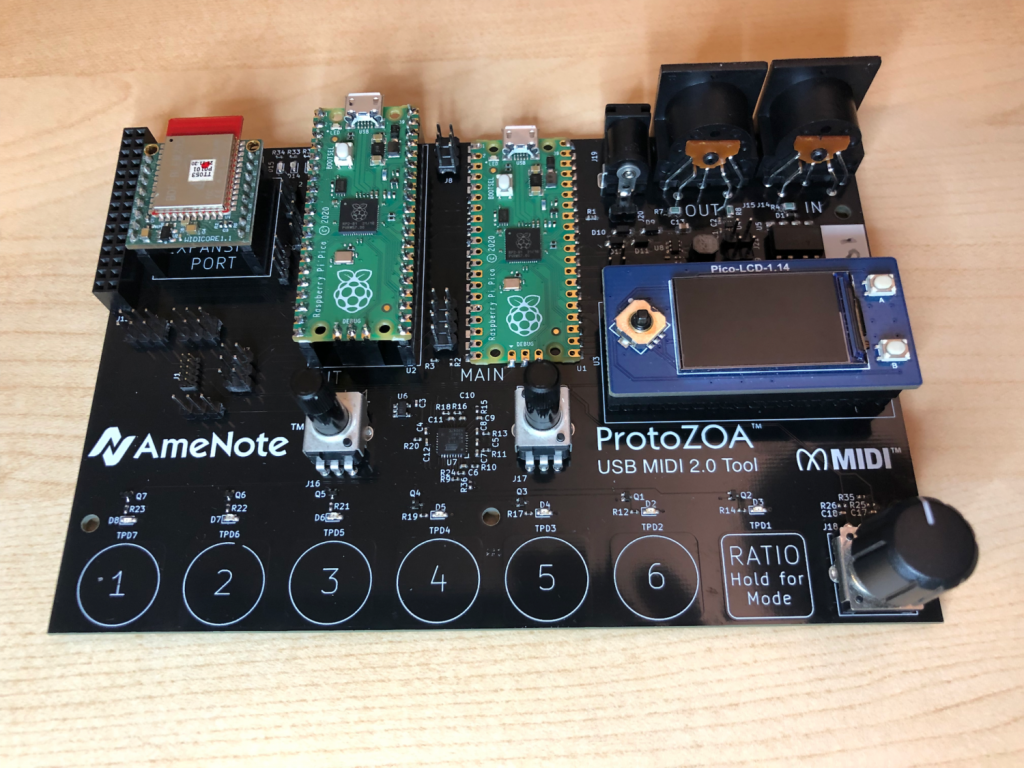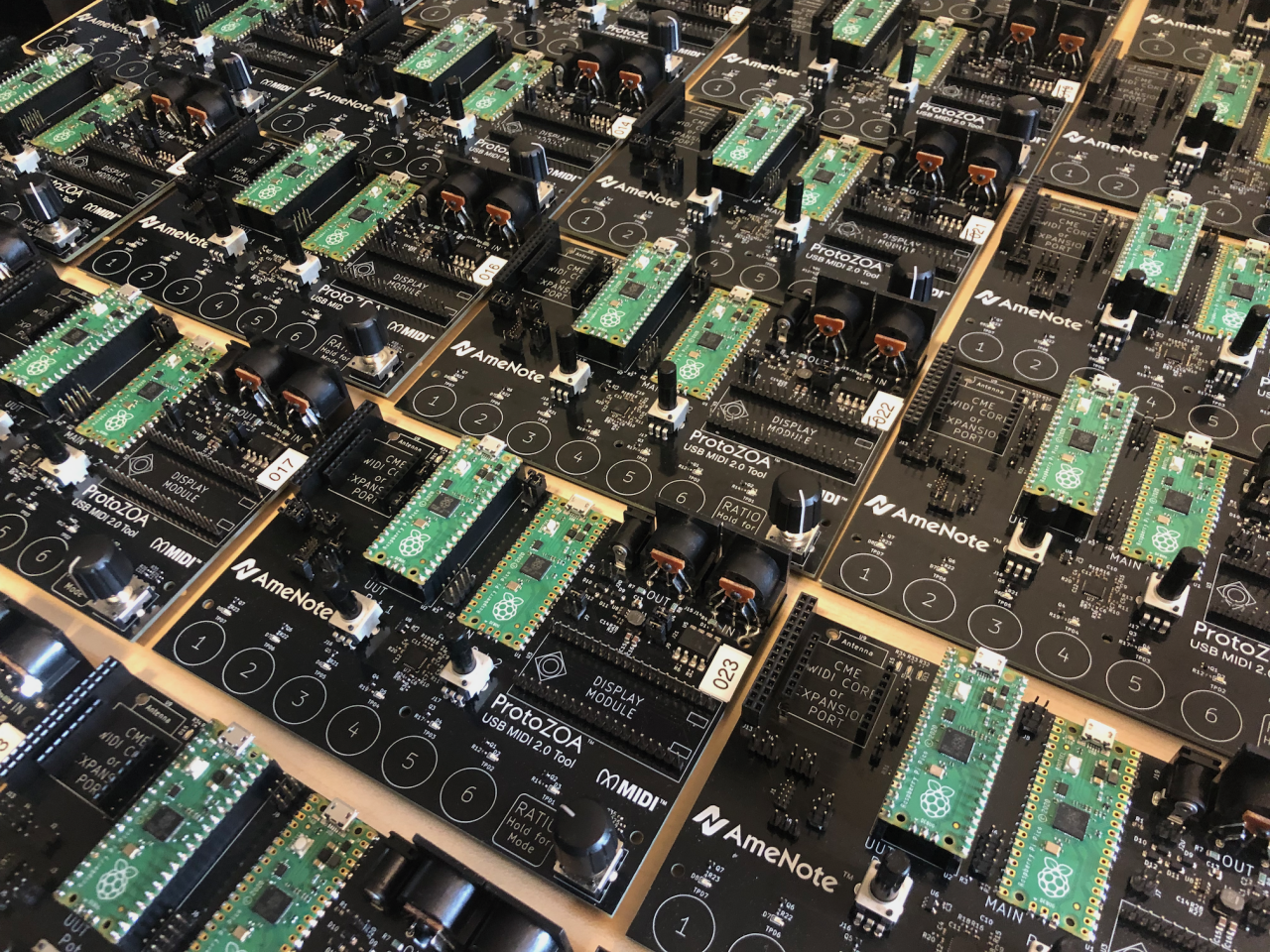MIDI 2.0 products and services will begin production due to an initiative set by over 50 MIDI Association companies.
MIDI Workbench
Leading the initiative is the Yamaha Corporation, developing the MIDI Workbench. The MIDI Workbench will serve as the main testing and compliance software tool for developers and manufacturers. The project is spearheaded by Andrew Mee, lead designer of Property Exchange, a core element in MIDI 2.0 technology.

ProtoZOA
Canadian company AmeNote’s ProtoZOA is a Raspberry Pico protoyping tool for MIDI 2.0 instruments. The firmware provides source code that hardware developers can place into their MID 2.0 devices.
AmeNote and MIDI 2.0 Working Group Chair Mike Kent has shared “plans to release most of the ProtoZOA source code as Open Source with a permissive license.” The advancement, he says, “will allow even non-MIDI Association members to use the code to develop MIDI 2.0 products.”
Funding for development of the ProtoZOA comes from the MIDI Association. The organization is also donating free ProtoZOAs and TB2 Groovesizers to those of its members who are volunteering in prototyping.
Additional MIDI 2.0 Advancements
Developers can now test MIDI 2.0 features for quality assurance, such as the MIDI Universal Packet, MIDI CI Discovery, USB MIDI 1.0 to 2.0 translation, and more.
With a hardware and software foundation for MIDI 2.0 in place, manufacturers and developers can use MIDI 2.0 advanced features. Maintaining full backward compatibility with existing MIDI 1.0 gear will also become more readily accessible.
MIDI Association President Athan Billias closed the press release with a statement on the latest development. “Since MIDI’s genesis, companies that are traditionally fierce competitors have chosen cooperation as the best way to solve difficult problems — and to contribute those solutions at no charge back to the global community, for the benefit of musicians, artists, and engineers everywhere,” he said.
Find more information on MIDI 2.0 on the MIDI Association website.



